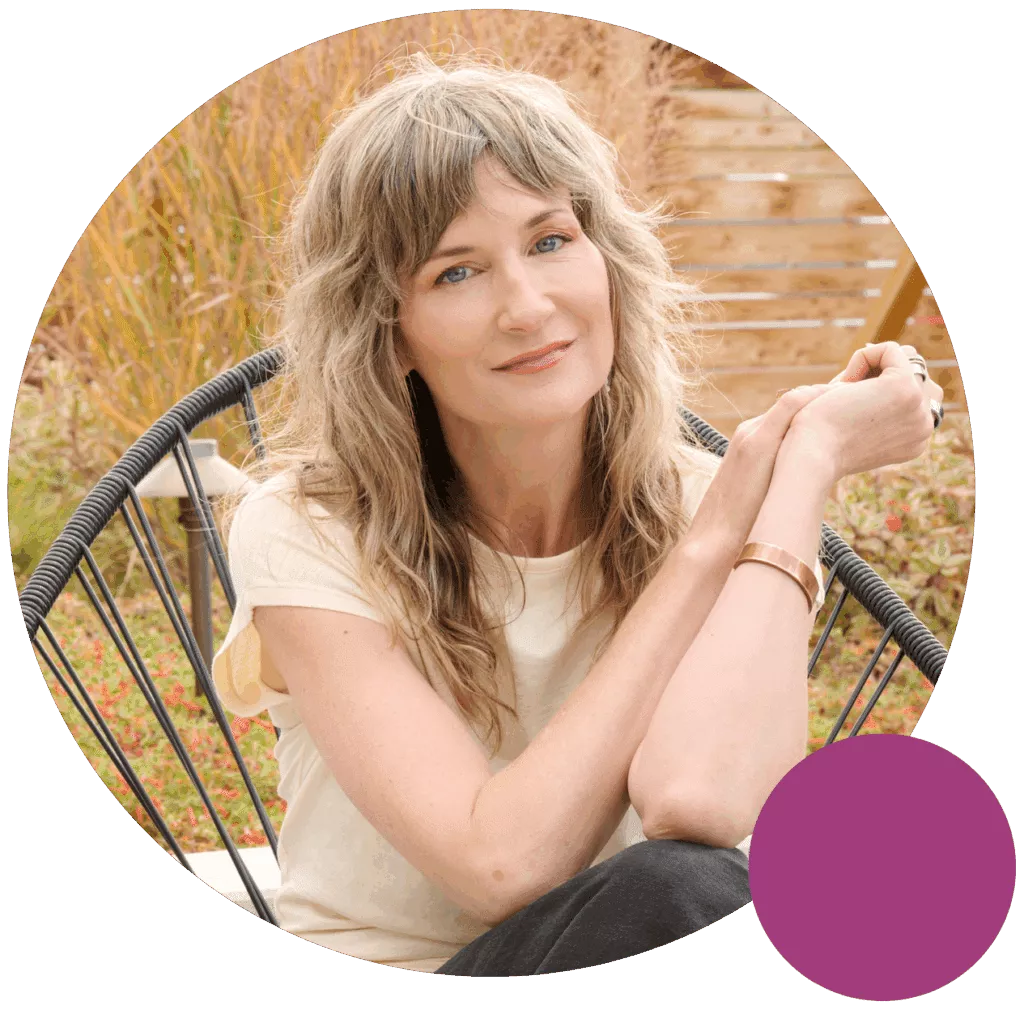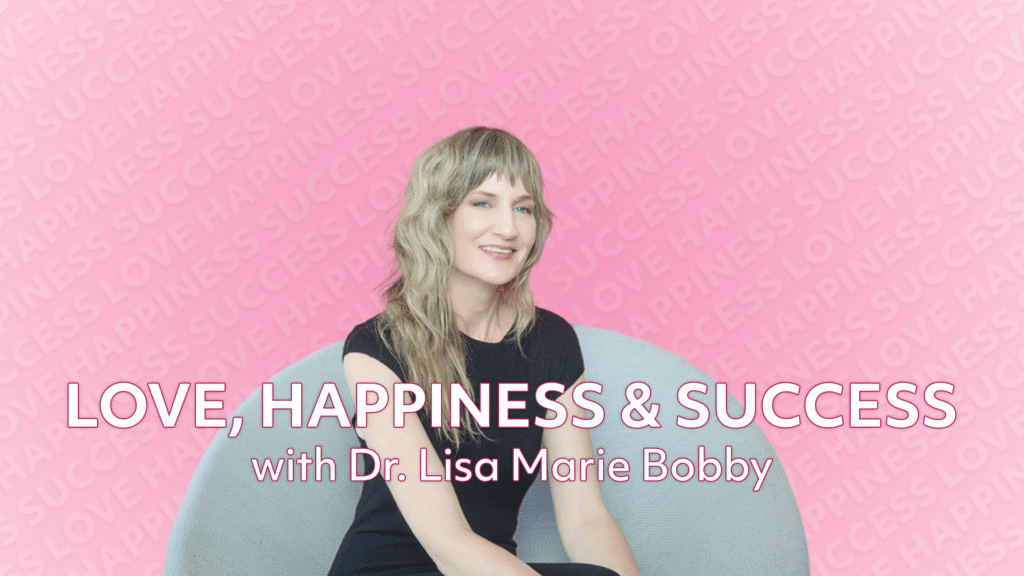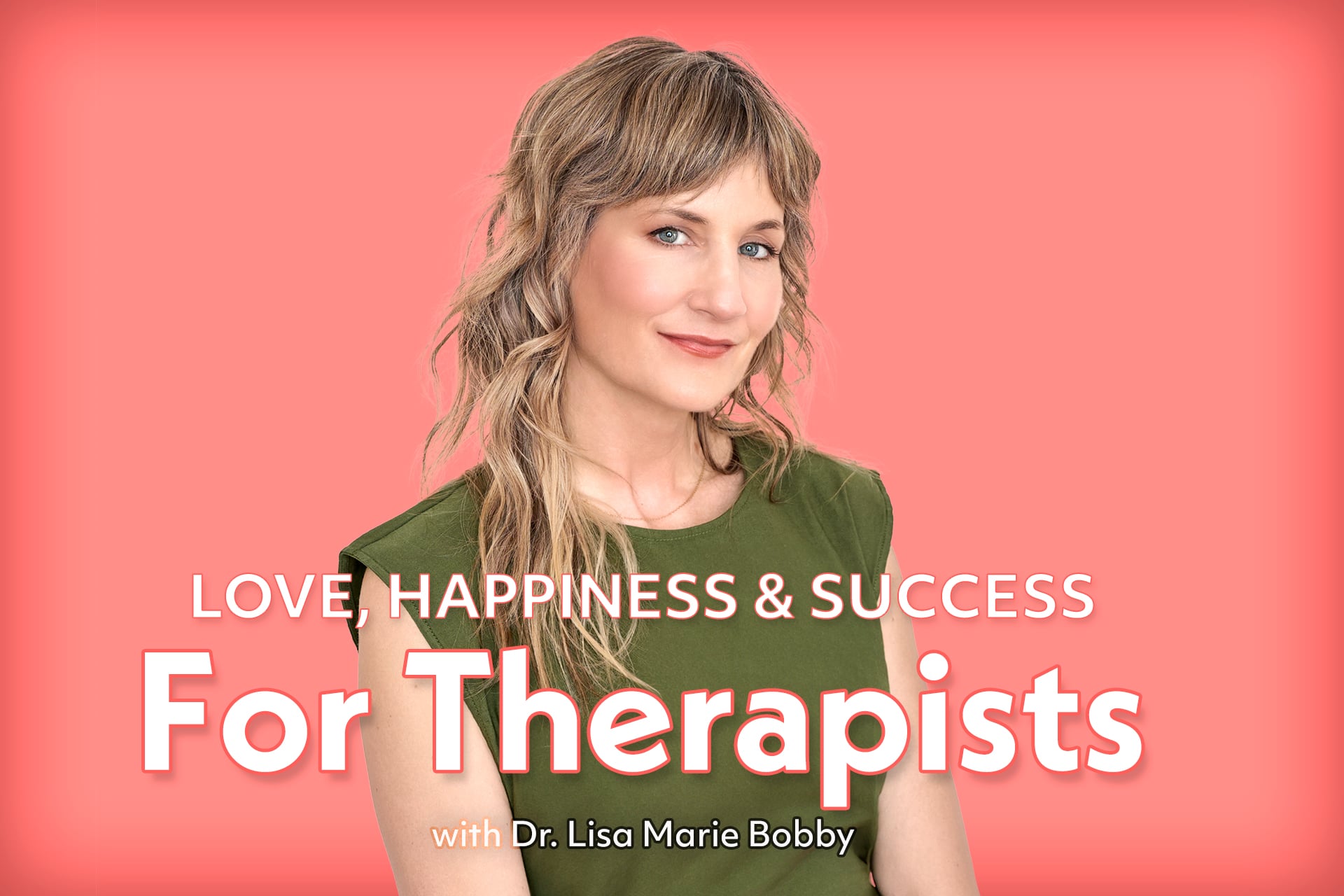Are You Addicted to a Toxic Relationship?
Are you addicted to a toxic relationship? Just like drugs and alcohol, relationships with high highs and low lows can get us emotionally “hooked.” Learn why toxic relationships are addictive, how to identify signs of a toxic relationship, and how to protect yourself.
- Toxic Relationship Addiction: A Case Study
- Can You Be Addicted to a Person?
- The Science of Toxic Relationships
- Toxic Love Addiction vs. True Love
- Support for Healing from Toxic Relationships
Are You Addicted to a Toxic Relationship?
Does your relationship feel like a roller-coaster of euphoria, pain, frustration, and bliss? Do you crave connection with your beloved, only to be disappointed, rejected or hurt, over and over?
If so, you may be addicted to a toxic relationship. I want you to know: you are not alone, and there is a path out. As a divorce and breakup recovery expert, I’ve sat with many heartbroken people in breakup therapy or divorce counseling as they work through the pain of leaving a toxic relationship. I share this story with you (both in this post, and in the accompanying podcast episode) in hopes that you won’t wait as long as Tom did to find your way back to true love.
Toxic Relationship Addiction: A Case Study
A year before he died, I sat with Tom in my therapy office as he continued to obsess over Sarah. He’d developed a crush on her while married to a woman who adored him, and left his wife and children for Sarah several years previously. Their affair had sparked a passion deep inside him, like nothing he’d ever known. They had fun together. They laughed. They had off-the-charts chemistry and their sexual connection was intense (which can actually be a red flag). As destructive and crushing as the relationship had been for him, he was still addicted to the way she made him feel.
Sarah was pretty, but mercurial. She would get upset and break up with him frequently, for reasons that mystified him. Even during the good times, he disapproved of her manipulative parenting, and he hated her free-spending ways. His friends disliked her. His daughters hated her. But he stayed by her side, even after she was convicted of shoplifting. At least, until another fight left him alone in a restaurant after she walked out on him… again. Tom’s face got red as he talked about his frustrations, but his brown eyes welled up with tears at the thought of detaching from the woman he loved.
During the break-ups he and I weathered together, Tom couldn’t bear to erase her number, delete her from Facebook, or block her email. The idea of being Capital-D Done and cutting the electronic cords filled him with fear. If he cut Sarah off completely, he wouldn’t get the inevitable “thinking of you” text that would flood him with the hope of getting back with his ex-lover for another few more months of bliss. Little did Tom know, theses are common trauma bond withdrawal symptoms, and they were keeping him stuck.
But the actual experience of being with Sarah was much more difficult than his idealized daydreams of her. While Tom lived for their intoxicating “peak moments,” you can only spend so much time riding a motorcycle, cresting waves of sexual ecstasy, or dancing at a concert. Sooner or later someone has to pay the tab, take out the trash, and decide what to cook the kids for dinner. That’s when the inevitable friction would start. Harsh sparks of judgment from a clash of values would quickly flare into anger and incinerate the good feelings that were the basis of the toxic relationship. When things got hard, Sarah would again reject Tom and refuse his calls, leaving him slumped miserably on my couch, pining for her. During these times he couldn’t eat. He couldn’t sleep. He started smoking again.
We talked about the addictive nature of this relationship, and Tom could understand it intellectually when I said things like, “Doing cocaine is lots of fun too, but just because it feels good doesn’t mean it’s good for you.” He could see the parallels. But he his head couldn’t overrule his heart. He felt euphoric when they were together. He felt a craving for her when they were apart. He was simply hooked. The fact that this relationship was the relational equivalent to eating ice cream for breakfast, lunch, and dinner didn’t matter. He just wanted to feel it again. And so it is with all addictions.
Can You Be Addicted to a Person?
Here is the definition of an addiction:
1) [Insert name of vice here] changes your mood.
2) Engaging in __________ stimulates your reward system.
3) __________ causes negative consequences for your life.
4) Despite being aware of the negative consequences, you can’t stop.
The alcoholic drinks to change his mood: to celebrate, to console, to unwind, and to feel free and loose. The gambler pulls the handle to feel the surge of excitement, and the intermittent thrill of victory. The lover desires to be with their irreplaceable other for the bliss of connection with their beloved. All these pleasures powerfully stimulate a neurological reward center deep in your brain that floods you with feelings of euphoria. This part of your brain, evolutionarily speaking, precedes the development of parts responsible for executive functions, language, and thought. It seems that we descended from animals who were built to crave pleasure.
This physiological engine of addiction drives our compulsions for “more,” whether it’s more heroin, or more shopping sprees, or more contact with our person. This compulsion overrides pain, fear, and values. It can motivate pigeons to peck for reward-laden pellets until they drop from exhaustion, and shivering skeletal addicts to exchange the last remnant of their human dignity to experience it again. And it can motivate an infatuated lover to abandon his loving family for an unhealthy relationship.


Haunted by your ex?
How to Heal, Grow, and Let Go…
Healing after a relationship loss happens in stages. If you can’t let go, it means that you’ve gotten stuck somewhere in the process. Let’s break you free.
Take this free, two-minute quiz to discover exactly what stage you need to work through, and what to do next in order to heal, grow, and move forward.
Becoming Addicted to a Person
In groundbreaking research, evolutionary anthropologist Dr. Helen Fisher identified subjects who reported being in love and collected MRI data of their brains. Sure enough, she found that when people were exposed to images of their beloved their reward centers lit up with pleasure. Her research suggests that romantic relationships stimulate the same addictive neurological pathway as opiates and amphetamines. We crave love.
When you consider that above all else (from an evolutionary perspective) the survival of our species has required us to pair-bond, reproduce, and remain committed enough to successfully raise babies together, having physiological brain structures that support “addiction” to intense feelings of love make perfect sense. Taking pleasure in proximity, and having an irrational devotion to an irreplaceable other that overrides pain, fear, and logical thought is necessary if we view the power of love in the context of survival.
Think of an exhausted man carrying a limp deer home through thigh-high snow to feed the vulnerable woman and children waiting for him. Without the invisible bonds that connect them to each other, what else would motivate him to keep going through so much danger and pain? Without the original craving for one specific person, people wouldn’t stick together long enough to form those attachments — the deeper bond that remains after romantic love fades.
One interesting theory is that this pair-bonding process was the original function of the brain’s reward system. More modern addictive substances and diversions may actually be hijacking the ancient highway of pleasure-craving that romantic love has ridden on since the beginning of time. While our pleasure system can be recruited for the pursuit of dark obsessions, its true purpose may be to drive us towards the pleasure we experience when we’re with our irreplaceable other. It’s there to drive us toward the attachment that sustains marriages, families, and enduring partnerships that create an ideal society. It’s there to push us towards true love: the most powerful, most positive, and most noble of all human experiences.
The Science of Toxic Relationships
Unless, of course, you fall in love with the wrong person: someone who rejects you, who is not compatible with you, or whose personality / values / judgment you’d find off-putting were it not for the surge of endorphins you feel in their presence. Even if you know in your head that the relationship is wrong, when you’re separated from your beloved, your reward center still craves closeness with them.
When you’re cut off from your irreplaceable other, the obsessions start and the compulsion to connect with them can be overpowering. That’s why so many heartbroken people talk themselves into having sex with their Ex, or trying to be friends with their Ex, despite wanting desperately to heal and move forward. It’s also why most of us can’t stop thinking about an Ex in the months following a breakup or divorce — a deep, ancient part of the brain is holding onto the attachment and doesn’t want to let go.
Sadly, this is what happened to Tom. Of all the “love addicts” I’ve worked with, his preoccupation with Sarah was probably the most toxic. Certainly the most tragic. We circled the cycle together many times: Rejection, Obsession and Craving, Reunion, Honeymoon, Frustration, Rejection. And each time, through our work together, the threads binding him to her stretched thinner as his awareness of his unhealthy dependence grew. But for Tom, clarity about their relationship and freedom from his addiction came late.
He started losing weight and complaining of odd pains in his stomach and by the time he finally went to the doctor he had late-stage pancreatic cancer, with a dismal chance of survival. Sarah accompanied him to one doctor’s appointment and then bailed for good, saying that “she just couldn’t stand to see him like this.” Clearly, the thrill was gone. She abandoned him to face the procedures, the chemo, the surgery, and the recovery alone.
The Difference Between Toxic Love Addiction and True Love
Only then did Tom really understand the truth of his addiction for the hollow reality it was: the pursuit of fleeting feelings. He’d left his marriage to dance in a mirage of excitement that crumbled to dust in his hands when he reached out for real support. Like Coleridge waking from his fever-dream about a pleasure-dome, Tom finally came to his senses only to find that he was alone in a desert without the True Love of attachment and commitment — from Sarah, at least.
And so he went home.
Because thankfully for him, the true love of his ex-wife and children had endured the years of his obsessive intoxication. Their true love, the unbreakable bond of a merciful family, was the nourishing, stable connection of support that was there for Tom at the end of his life.
In his final days, Tom was finally healed of his addiction. He found forgiveness and redemption when he came to understand and appreciate what true love really is: the quiet, unselfish service to the wellbeing of another that endures long after the sparkles of romantic love fade.
True love is not always fun or exciting. It’s not terribly addictive. But it is there at 3am to mop up vomit and to shelter you when you have nowhere else to go. It’s the kind of love that has the courage to walk beside you into death and maybe even meet you again on the other side.
True love is never an addiction because it’s not actually a feeling at all — but a choice.
Getting Help for Toxic Relationship Addiction
If you’re addicted to a toxic relationship, I hope Tom’s story helps you see some of the dynamics that may be at play from a new perspective. If it helps you to choose real, healthy love (including love for yourself and a true commitment to your own emotional health) over toxic infatuation, then I think that’s a wonderful legacy.
Cutting the cords to a toxic relationship can be incredibly difficult. If you’d like a breakup recovery expert by your side to guide you with empathy through the healing process, we’re here for you. I invite you to schedule a free consultation.
xoxo,
Dr. Lisa Marie Bobby
Listen & Subscribe to the Podcast
Are You Addicted to a Toxic Relationship?
The Love, Happiness & Success Podcast with Dr. Lisa Marie Bobby
Free, Expert Advice — For You.
Subscribe To The Love, Happiness, and Success Podcast
Music
Music in this episode is by Frankie and the Witch Fingers with their song “In Your Head.” You can support them and their work by visiting their Bandcamp page here: frankieandthewitchfingers.bandcamp.com. Under the circumstance of use of music, each portion of used music within this current episode fits under Section 107 of the Copyright Act, i.e., Fair Use. Please refer to copyright.gov if further questions are prompted.
From Heartbreak to Healing: Your Next Chapter Starts Here
How to Get Over a Breakup — For Good.
There are nine distinct stages of healing after relationship loss. If you miss one, you’ll get stuck. Dr. Lisa’s one-of-a-kind, comprehensive system guides you productively through all, with the support of group coaching and 1:1 sessions. Learn more about How to Heal From Heartbreak →
How Long To Get Over a Breakup? Find Out.
When will you finally get over your breakup, and be emotionally free from your ex? How over your ex are you? What’s your breakup recovery timeline? What do YOU need to do next, in order to move forward? Access Dr. Lisa’s confidential, free Breakup Quiz here, and find out →
Online Breakup and Divorce Support Group
You’re not alone. Heal your heart in our positive, affirming online breakup and divorce support group, with weekly group coaching led by an experienced divorce and breakup recovery counselor, plus 24/7 access to an affirming community of support. Learn more about Dr. Bobby’s Heartbreak Growth Collective →
Get Relationship Clarity Through Discernment Counseling
Should you end this? Or is there still hope for your relationship? Find out, and get the clarity and confidence you need to move forward, through a special (rare) type of couples work designed for this. Learn about discernment counseling →
You’re Not Alone In This: Let Us Help You
We have so many ways to support you during this difficult time including structured programs, group coaching, and 1:1 private sessions. Which path is right for you? Have a free consultation, to discuss your situation, your options, and the best path forward. Schedule Your Free Consultation →
Need Encouragement? Perspective? Guidance? It’s Here: Free Divorce & Breakup Advice
You’re going through a painful time, and Dr. Lisa is here for you. Get her guidance for free, right now in this curated podcast playlist and content collection she put together just for you. Access her Healing From Heartbreak Collection →
Exaholics: Breaking Your Addiction to an Ex Love
Why is it so hard to let go, even when you know you should? In her award-winning “Exaholics” book, Dr. Lisa explains why, and illuminates the path forward towards emotional liberation, growth, and recovery. Get your copy of Exaholics, right here →
Why You Can’t Stop Thinking About Your Ex — And How to Break Free
Can you ever stop loving someone? Want to know how to get over an ex? Learn how to stop thinking about someone so you can move on.
What It Really Takes To Get Over Someone: The Stages of a Breakup
Withdrawal, grieving, growing, rebuilding: Understanding the stages of recovery are vital to your healing process after a divorce. Learn about the stages of breakup recovery…
Yes, You Can Create an Amicable Divorce
You’re divorcing, and your biggest fear is what will happen to the kids. How can you make this as okay as possible for them? Learn how to achieve an amicable divorce →
Stop a Divorce
The threat of divorce can actually be a turning point for a marriage if you understand how to use it as an opportunity to foster healing. In this podcast, learn how to stop a divorce →
Why Do You Keep Going Back? Are You Addicted to a Toxic Relationship?
Profoundly unhealthy relationships can be the hardest to get over. Find out if you’re addicted to a toxic relationship.
When to Call It Quits
Is there still hope for your relationship, or is it best to part ways? Learn the signs that growth and healing are possible, vs. signs it’s time to call it quits in a relationship →
How to Leave a Toxic Relationship, With Dignity
Learn why it’s so hard to leave a toxic relationship, and the things you can do to empower and support yourself in your journey to emotional empowerment.





Jim, given what you’re describing, I wonder if the best course of action may be for you to not be in any relationship with anyone until you get yourself figured out and get to a place where you can be a reliable, trustworthy partner. Wishing you all the best….. Lisa
I have been in a relationship with someone for about a year who has some serious emotional baggage, which he seems unable to even start to deal with. I’ve been dumped several times over that year, and kept being drawn back in because I believed the way he was treating me was in some way forgivable, a result of him not being able to cope with the emotional turmoil he was experiencing. I was kept a secret from his family due to some of this baggage, with my stuff I left at his house packed up when they were coming over. So I’d be dumped but as soon as I put some distance between us he’d appear again with a phone call or text, asking me to come over and we’d start again, only for him to disappear again shortly after. I just feel like I’ve been kept on a piece of elastic. I was increasingly being blamed, I was “making things impossible” and stressing him out, if I even dared to discuss how the problems he was experiencing could be overcome. True you shouldn’t try to fix people but I was doing it for me too, as it was effecting my life. Now I find myself being sent a text from him saying “we are over, i’m not going back’, as if I am the only one that has been pursuing this relationship.
What a terrible situation for you to have been in. You know, I think it’s really common for people trapped in a toxic relationship to go around and around a few times until they can begin to see the toxic relationship patterns they’ve been dealing with. I can understand how it’s enraging to now be manipulated and made out to be the pursuer, but I would encourage you to not take the bait and argue back. In genuinely toxic relationships, that type of emotional game-playing and the need to “defend yourself” is actually part of what can keep you trapped in this dynamic. Better to just block this person and remove their ability to communicate with you at all, ever again. That will keep you from being baited and tormented, so that you can get far, far away from all this. Did you check out the “Leaving a Toxic Relationship” podcast yet? I hope you listen to it! Wishing you all the best, Dr. Lisa
Hi Dr. Bobby,
I just finished your “How to End a Toxic Relationship, with Dignity” podcast and found it very helpful. However, I have a few remaining questions. I do believe I’m in a toxic relationship over the last 4 years. Initially, my partner was very toxic. He told me outrageous lies to keep me in the relationship for at least 3 years. Every time I thought I knew all the lies, I would find out more. He lied about his divorce, his job, his family, even telling me his mother was dying of cancer. However, over the last year he has seemed to be really working on himself. He’s gotten a better job, gotten divorced and tried to mend things with me. He does a lot of things for me such as home repairs and buys me things. Our sons get along so well. During the first three years of the relationship my feelings for him slowly faded and my self esteem took a hit. I’ve broken up with him numerous times but he always finds a way to get me to give him another chance. Now I find that I’m the one with the toxic behavior. I see him for a few days and it’s great and then I’m reminded of all the damage he has done and have huge reactions to small infractions. I will say mean things to him and say interacting was a mistake and cut off communication. He is pushy when we start to interact again, I tell him I just want to feel things out and a week later he’s making commitments for months in advance and pushing for a committed relationship and spending every day together. Admittedly, I get caught up in the excitement and agree to these things without thinking them through. This makes me feel very pressured and when I tell him how I’m feeling he dismisses my concerns and just says he’s better now and we need to move on. Now I’m confused as to if he’s better and I’m the problem and should go to the counseling with him (which he is agreeable to) or if I should try to break free for good. We’ve tried counseling twice over the years and he was still lying during both of those times so I’m reluctant to go now, even though I haven’t caught him lying in the last few months. I’d really appreciate your insight. Thank you!
Hi, Amy. Thanks so much for your question. Your situation sounds very difficult. It’s also completely in alignment with how people feel when they’ve been in a toxic relationship for a while having experiences like those you describe here. None of us are our best selves when we’re interacting with people who’ve mistreated us and violated our trust again and again. It brings out the worst in you. Sooner or later, you start questioning whether you’re the toxic one.
Regaining trust in yourself and repairing your self-esteem is your number one priority right now, much more so then whether you go for another round with your partner. You’ve been through the wringer in this relationship and it’s time to focus on you.
If you’d like support from a counselor who understands toxic relationship dynamics, reach out: https://growingself.typeform.com/connect
Wishing you healing and happiness xoxo Dr. Lisa
Your writing has a way of transporting readers to far-off places and different experiences.
Thank you so much. I’m glad you enjoy the blog — I do it for you! xoxo Dr. Lisa